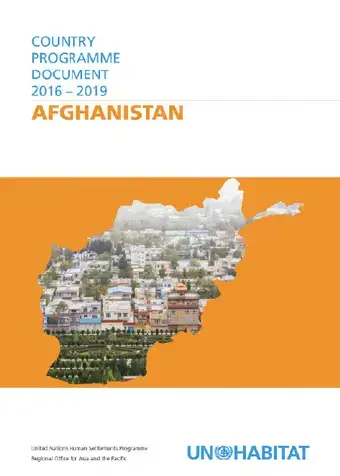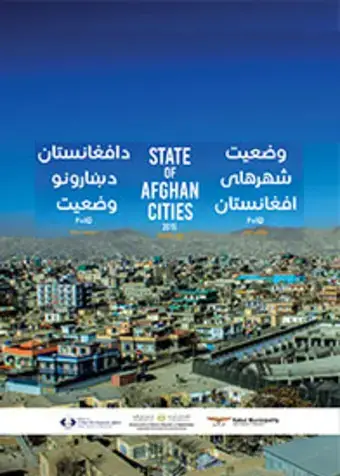 On this edition of Urban Impact, you will read about how UN-Habitat is supporting access to clean water for citizens of Hargeisa (Somaliland), Somalia, through the establishment of a new water system as well as constructing a new water supply and storm drainage system for the citizens of Kanyama, the largest informal settlement in Zambia.
On this edition of Urban Impact, you will read about how UN-Habitat is supporting access to clean water for citizens of Hargeisa (Somaliland), Somalia, through the establishment of a new water system as well as constructing a new water supply and storm drainage system for the citizens of Kanyama, the largest informal settlement in Zambia.
Urban Impact - Issue 02
UN-Habitat launches the second Kabul Metropolitan Conference
 Kabul 18 March 2016--- UN- Habitat last week launched the second Kabul Metropolitan Conference aimed at assisting key partners to foster spatial metropolitan planning and governance for the greater Kabul area. This conference was jointly chaired by the Afghan Minister of Urban Development Affairs (MUDA) Mr. Sadat Naderi, the Deputy Minister of Municipalities (DMM)Mr.
Kabul 18 March 2016--- UN- Habitat last week launched the second Kabul Metropolitan Conference aimed at assisting key partners to foster spatial metropolitan planning and governance for the greater Kabul area. This conference was jointly chaired by the Afghan Minister of Urban Development Affairs (MUDA) Mr. Sadat Naderi, the Deputy Minister of Municipalities (DMM)Mr.
Afghanistan holds national urban conference
Kabul, 9 November 2015— On the occasion of the “World Urbanism Day”, also known as "World Town Planning Day", the government of Afghanistan held a national urban conference jointly hosted by the Minister of Urban Development Affairs, Sadat Mansour Naderi and the Special representative of the President of Afghanistan in Reform and Good Governance, Mr. Ahmad Zia Masoud.


 Kabul 20 April 2016—The government of Afghanistan, with the technical assistance from UN-Habitat recently completed a series of workshops aimed at developing an Urban National Priority Programme (U-NPP).
Kabul 20 April 2016—The government of Afghanistan, with the technical assistance from UN-Habitat recently completed a series of workshops aimed at developing an Urban National Priority Programme (U-NPP). Kabul, Afghanistan, February 08 2016 - During 1-5 February 2016 more than 350 civil society representatives and community members from the five major Afghan cities - Kabul, Herat, Mazar-e-Sharif, Jalalabad and Kandahar - were in Kabul to take part in Inclusive Afghan Cities W
Kabul, Afghanistan, February 08 2016 - During 1-5 February 2016 more than 350 civil society representatives and community members from the five major Afghan cities - Kabul, Herat, Mazar-e-Sharif, Jalalabad and Kandahar - were in Kabul to take part in Inclusive Afghan Cities W Kabul, 15 December 2015 - At a ceremony held in Kabul the Government of Afghanistan and UN-Habitat over the weekend officially launched the 'Future of Afghan Cities Programme'.
Kabul, 15 December 2015 - At a ceremony held in Kabul the Government of Afghanistan and UN-Habitat over the weekend officially launched the 'Future of Afghan Cities Programme'. Kabul 1 October 2015 – The European Union and UN-Habitat have signed the USD 14 million Municipal Governance Support Programme (MGSP) agreement to support nine Afghan cities with spatial planning, municipal governance and land management.
Kabul 1 October 2015 – The European Union and UN-Habitat have signed the USD 14 million Municipal Governance Support Programme (MGSP) agreement to support nine Afghan cities with spatial planning, municipal governance and land management.